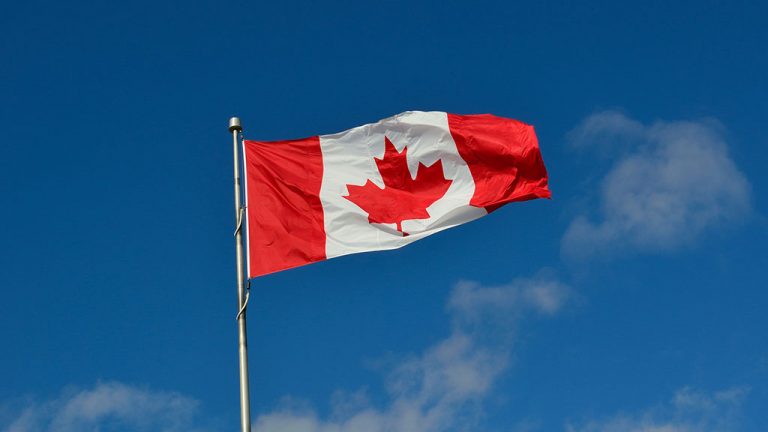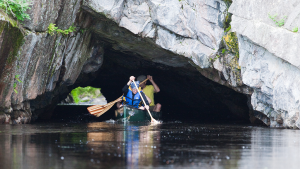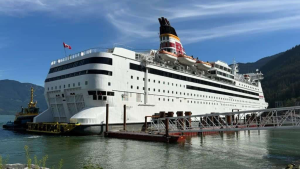It seemed like a perfect match: Fiat and the Olympics.
Funding for road, tunnel and venue construction more than $1.9B
TURIN, Italy
It seemed like a perfect match: Fiat and the Olympics.
The Turin-based carmaker and its flamboyant ski-loving chairman, Gianni Agnelli, would ensure the financial security of the 2006 Winter Games in the Piedmont capital and surrounding Alps.
It hasn’t worked out that way.
With just over a year to go before the opening ceremony, Turin is scrambling to line up sponsors, overcome a $196-million (all funds U.S.) budget shortfall and drum up national support.
Fiat, meanwhile, is in deep financial trouble due to dwindling car sales and has gone through five CEOs in less than two years. Agnelli died in 2003 and his brother, Umberto, died last May.
Fiat companies are contributing only $52 million to Turin’s overall $1.5 billion Olympic budget, much of it in payment-in-kind services such as 3,000 cars and 900 buses.
When the Games were awarded to Turin in 1999, the project seemed assured of financial backing.
The Agnelli family founded Sestriere, the main Alpine ski venue for the Olympics, back in the 1930s. Sestriere is the centre of the “Milky Way,” a constellation of winter resorts which attract millions of tourists who ski across the border to France and back.
It was hoped that Fiat’s bus, truck and automotive industry would solve the problem of transport across single-lane mountain roads. Style and sleek Italian design would spill over to the slopes. But Fiat and other Italian companies have been slow to pitch in.
Italy’s state airline Alitalia, close to bankruptcy, backed out of its $13-million to $15-million commitment. Other Italian private and state-controlled companies responded meekly to appeals for funds.
Only San Paolo Bank ($58 million) and phone company Telecom Italia ($72 million) have joined Fiat as national main sponsors. Last year’s low-key launch of the Games’ two mascots — snowball and ice cube figures called Neve and Gliz — did little to boost the marketing push.
“The response of the Italian market was smaller than anticipated, but we raised $326 million nationally, which is a figure consistent with the size of the Italian market in the economic situation of Europe right now, which is not so great,” Turin organizing committee chief Valentino Castellani said. “I think that’s a good result.
“I don’t think it’s right to talk about a hole in the budget,” he added. “It’s not as if we’ve already spent the money. It’s not like we’re in debt. We have a spending estimate and it has not yet been completely covered by funding.”
Turin is getting substantial funding from outside sources arranged by the International Olympic Committee: Worldwide television rights are bringing in $618 million and a global sponsorship program accounts for $196 million. In addition, total ticket sales are expected to bring in $100 million.
In November, the situation looked grave. The budget shortfall was $316 million and government finance authorities examined records of the organizing committee and a construction company involved in Olympic-related capital projects.
The Turin region’s road, tunnel and venue construction program is covered by a separate budget of over $1.9 billion.
The IOC has repeatedly pressed the Italian government to help. However, as a private foundation, Turin’s organizing committee (TOROC) is prevented by state law from receiving government subsidies.
The Italian government recently sent cabinet undersecretary and IOC member Mario Pescante to serve as overall supervisor for the Olympics.
Pescante, a member of the right-wing National Alliance in Premier Silvio Berlusconi’s government, brought in the promise of several hundred million Euros in fresh funds.
Gilbert Felli, the IOC executive director for the Olympic Games, said he expects a final budget solution to be reached before the IOC’s Feb. 10-11 board meeting in Turin.
“At the end of the day, I’m sure the Italian government will do the necessary thing,” he said.
Meantime, many Italians say there’s no need to worry — they’re used to getting things done at the last minute. When Italy hosted soccer’s World Cup in 1990, workers were still laying down pieces of turf just minutes before teams walked onto the field.
“We will come through this as Italy always comes through,”’ said Alain Elkann, an adviser to the Berlusconi government and father of two young Agnelli family scions who are running Fiat. “Our virtuosity and creativity will find a way.”
The Associated Press










Recent Comments
comments for this post are closed